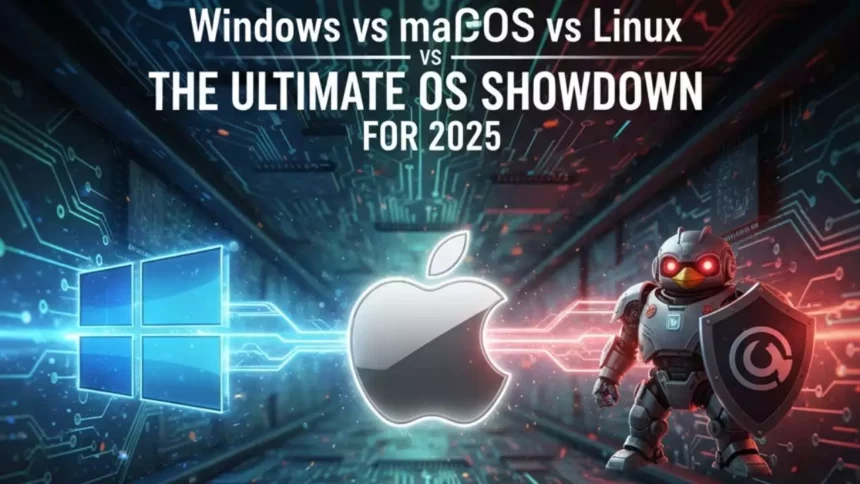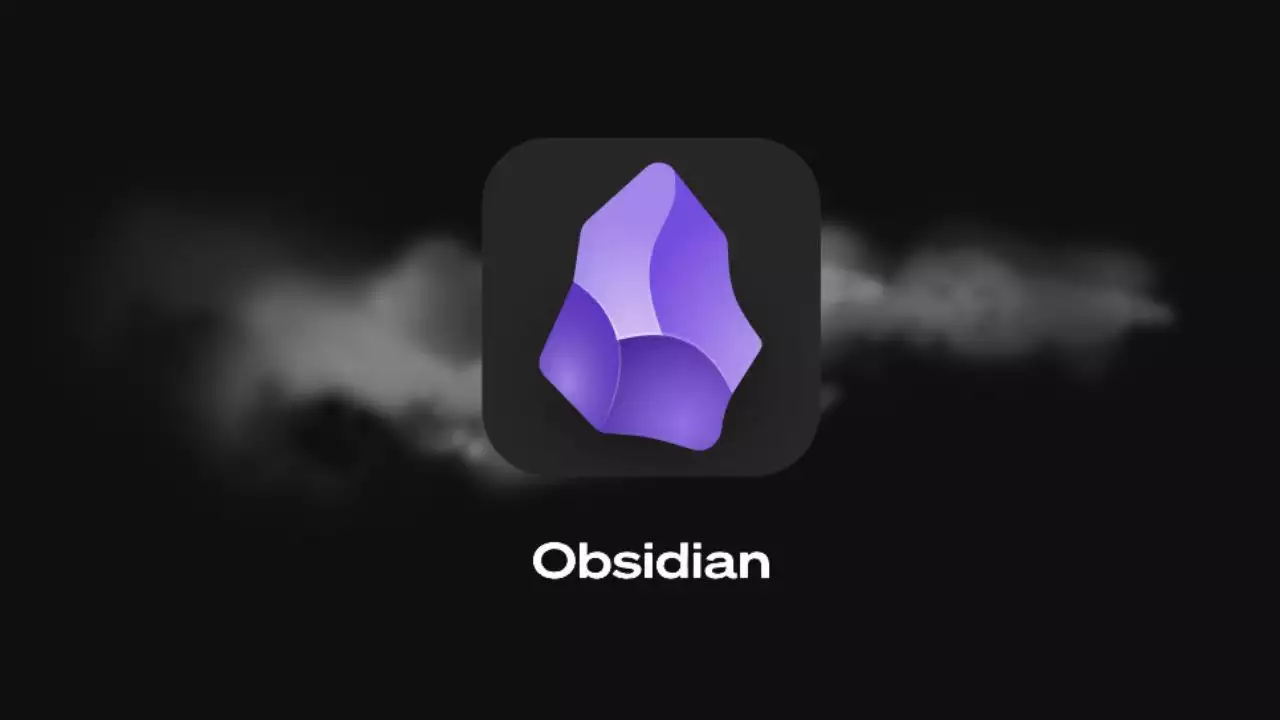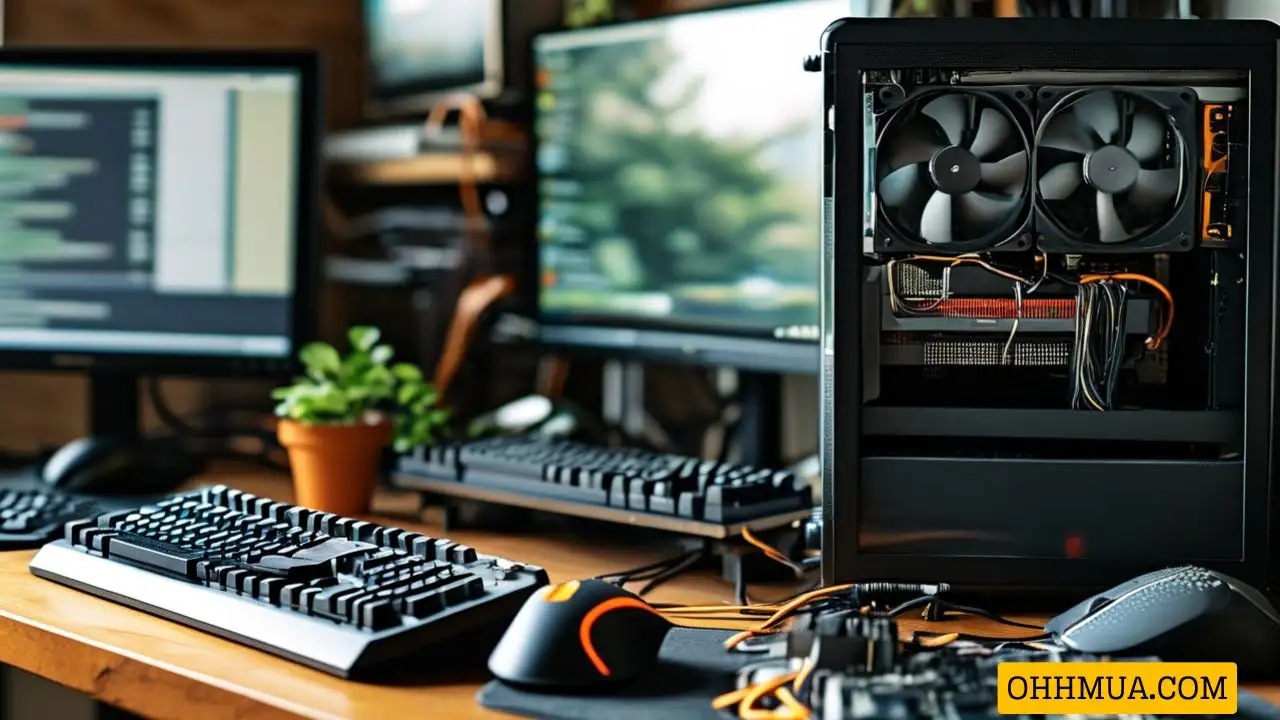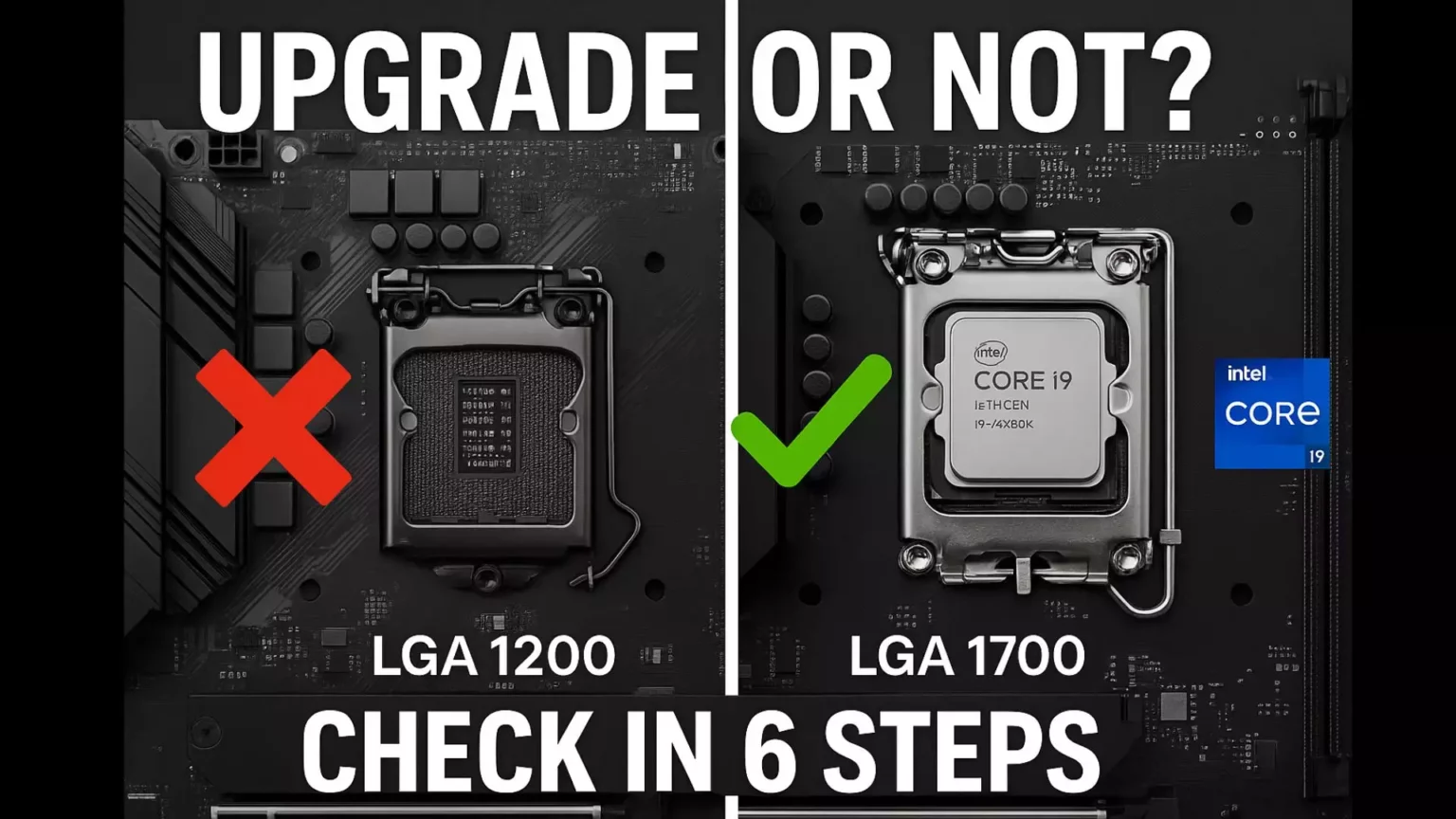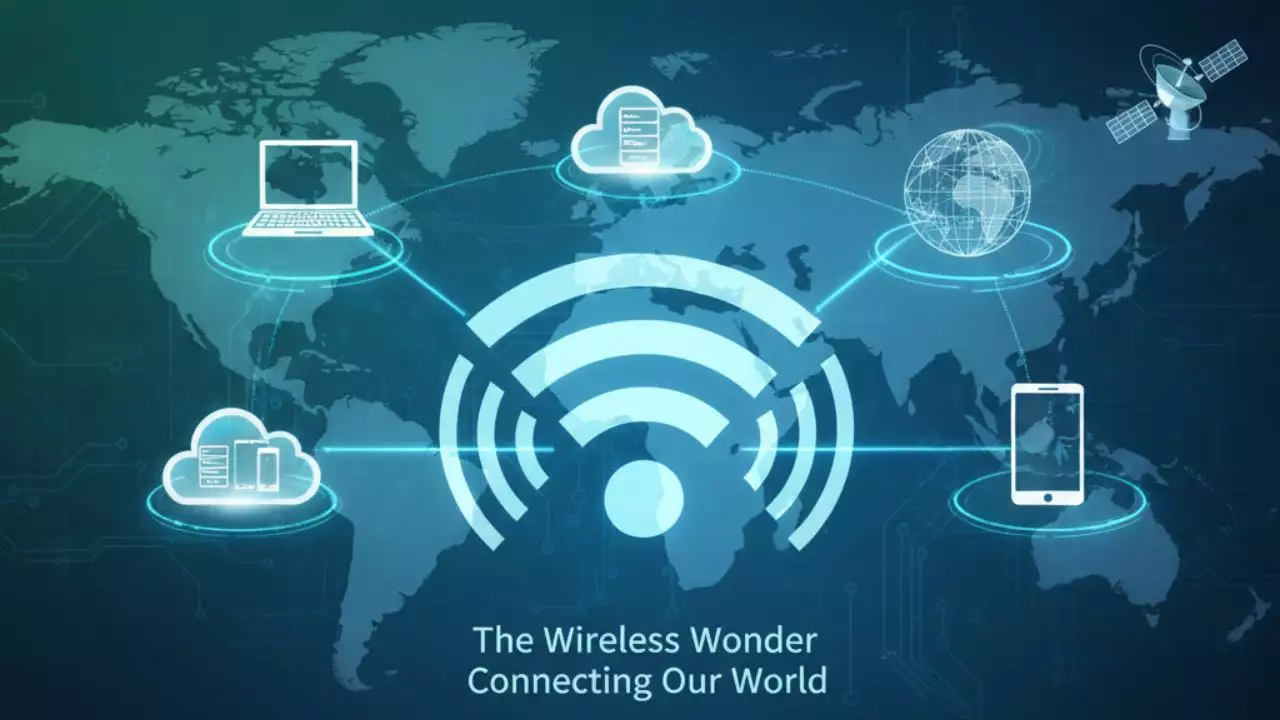In the ever-evolving world of technology, choosing the right operating system can feel like picking the perfect tool for a job, it’s all about matching your needs, preferences, and lifestyle. Whether you’re a casual user streaming movies, a creative professional editing videos, or a developer coding late into the night, Windows, macOS, and Linux each offer unique strengths that could make one stand out. As we head into 2025, advancements in hardware integration, security protocols, and user customization have only heightened the competition. This article dives deep into a balanced comparison of these three giants, drawing from general trends in user experiences, performance benchmarks, and community insights. By the end, you’ll have a clearer picture of which OS might best suit your digital life. Let’s break it down step by step, exploring everything from history to practical everyday use.
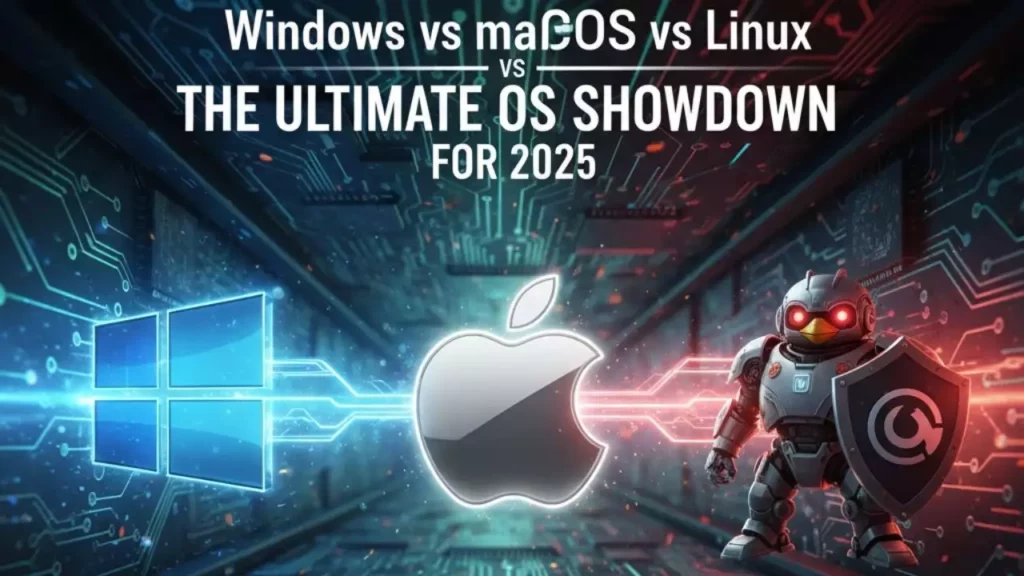
Overview of Each Operating System
When comparing operating systems, it’s helpful to start with the basics: where they came from and what they’re designed for. Each one has roots that shape its identity today, influencing how they perform and who they appeal to most.
Brief History and Evolution
Windows, developed by Microsoft, traces its origins back to the 1980s with the release of MS-DOS, which evolved into the graphical Windows 1.0 in 1985. Over the decades, it has grown into a powerhouse, with milestones like Windows 95 introducing the modern desktop interface and Windows 10/11 bringing touch support and cloud integration. Today, in 2025, Windows continues to dominate the personal computing market, adapting to new hardware like AI-powered chips and virtual reality setups.
On the other hand, macOS, Apple’s brainchild, began as the Macintosh System in 1984, pioneering user-friendly graphical interfaces. It transformed into macOS with the shift to Intel processors in the mid-2000s and later embraced Apple silicon with the M1 and subsequent chips. This evolution has made macOS a symbol of seamless hardware-software harmony, especially as Apple pushes boundaries with features like advanced machine learning in macOS Ventura and beyond.
Linux, the open-source trailblazer, started as a kernel created by Linus Torvalds in 1991. What began as a hobby project quickly became a collaborative effort, leading to distributions like Ubuntu, Fedora, and Mint. By 2025, Linux has solidified its role in servers, embedded systems, and desktops, thanks to its flexibility and community-driven updates. Its evolution highlights a commitment to accessibility, with major distributions incorporating modern features like improved gaming support through tools such as Steam Proton.
Key Features and Target Users
Each OS shines in its own way, catering to different user bases. Windows is the go-to for versatility, excelling in general computing tasks like office work, gaming, and multimedia. Its broad appeal makes it ideal for everyday users, businesses, and educators who need compatibility with a wide range of software and hardware.
macOS, tightly integrated with Apple’s ecosystem, targets creative professionals and media enthusiasts. Features like the intuitive Touch Bar (on older models) and seamless iCloud syncing make it perfect for photo editing, video production, and music creation. If you’re deeply invested in Apple devices, macOS offers a polished experience that feels like an extension of your iPhone or iPad.
Linux, with its customizable nature, attracts developers, tech enthusiasts, and budget-conscious users. Distributions like Ubuntu provide a stable base for coding, server management, and experimentation, thanks to tools that allow deep system tweaks. It’s especially popular in environments where security and efficiency matter, such as in scientific research or open-source projects.
User Experience and Interface
The way an OS looks and feels can make or break your daily interaction with your computer. From navigation to learning how to use it, these elements play a big role in user satisfaction.
Design and Navigation
Windows has long been known for its practical, customizable interface. The Start menu, now featuring a mix of tiles and search functionality in Windows 11, allows for quick access to apps and files. This design is particularly user-friendly for those who juggle multiple tasks, like switching between virtual desktops or pinning favorite tools.
macOS stands out with its sleek, minimalist aesthetic. The Dock and Mission Control provide intuitive navigation, making it easy to manage windows and applications. In 2025, enhancements like Stage Manager in macOS continue to optimize workflows for creatives, offering a distraction-free environment that feels premium and cohesive.
Linux offers unparalleled flexibility in interface design, with distributions like Ubuntu using GNOME or KDE for highly customizable desktops. You can tweak everything from the taskbar to the wallpaper with simple commands, appealing to users who enjoy personalizing their setup. However, this variety means beginners might feel overwhelmed by choices, though options like Linux Mint provide a more Windows-like experience out of the box.
Learning Curve for Beginners
For newcomers, Windows often feels familiar, especially if you’ve used it before on school or work computers. Its straightforward setup and abundant tutorials make it accessible, with features like Cortana (or its successors) helping with voice commands and tips.
macOS boasts a gentle learning curve, thanks to its consistent design across Apple products. If you’re coming from an iPhone, the transition is seamless, with gestures and shortcuts that feel intuitive. This ecosystem approach reduces frustration, making it a solid choice for those new to desktops.
Linux, while rewarding, typically has a steeper curve due to its command-line requirements and distribution variations. That said, community resources like forums and documentation have improved dramatically by 2025, offering guides that help beginners get up and running quickly. Once past the initial hump, users often appreciate the control it provides.
Performance and Hardware Compatibility
Performance isn’t just about speed; it’s about how well an OS handles your hardware and daily demands. Let’s look at how these systems stack up in efficiency and compatibility.
Speed and Efficiency
Windows excels in handling resource-intensive tasks, such as gaming or video editing, with optimizations that leverage powerful GPUs and multi-core processors. In 2025 benchmarks, it shows impressive multitasking capabilities, with fast boot times under 10 seconds on SSD-equipped machines.
macOS has made strides with Apple silicon, delivering exceptional efficiency for battery-powered devices. Laptops like the MacBook Air boot in seconds and manage heat better during prolonged use, making it ideal for mobile professionals. Its optimized kernel ensures smooth performance in creative apps, often outperforming expectations in low-power scenarios.
Linux shines in environments where resources are limited, like older hardware or servers. Distributions optimized for speed, such as Ubuntu Server, boot rapidly and handle multiple processes with minimal overhead. In general, it’s a top pick for efficiency in coding and data analysis, where it can run complex simulations without bogging down.
Hardware Support and Requirements
Windows offers broad compatibility, supporting a vast array of hardware from various manufacturers. This makes it easy to upgrade components like graphics cards or peripherals, though it sometimes requires manual driver updates.
macOS is restricted to Apple hardware, which ensures top-tier performance but limits choices. By 2025, its integration with M-series chips means incredible battery life and speed, but you’ll need to stick with Apple’s ecosystem for the best results.
Linux is highly flexible, working with everything from high-end PCs to Raspberry Pi devices. However, proprietary hardware like certain printers or Wi-Fi cards might need extra configuration. In most cases, community drivers fill these gaps, making it a versatile option for custom builds.
Security and Privacy Features
In an era of increasing cyber threats, security is paramount. Each OS has built-in defenses, but they approach protection differently.
Built-in Security Measures
Windows includes robust tools like Windows Defender, which uses real-time scanning and AI to block malware. By 2025, enhancements include advanced firewall settings and biometric logins, providing a solid layer for everyday users.
macOS leverages Gatekeeper and FileVault for app verification and disk encryption, respectively. Its controlled App Store reduces risks, and features like automatic updates keep systems patched against vulnerabilities.
Linux relies on permission-based systems and package managers like APT or YUM for secure installations. This open-source model allows for quick fixes, with tools like firewalls and SELinux offering granular control, making it a favorite for secure environments.
Vulnerability History and Updates
Windows has faced its share of issues, with frequent patches addressing exploits, but Microsoft’s rapid response system ensures most users stay protected. In recent years, it’s improved with proactive updates.
macOS benefits from a closed ecosystem, limiting exposure, and Apple’s strict controls mean fewer widespread vulnerabilities. Updates are typically seamless and less frequent, focusing on stability.
Linux’s community-driven approach means vulnerabilities are often fixed quickly through distributions. Generally, its transparency leads to fewer severe issues, as users can audit code themselves.
Software and Applications Availability
The availability of apps can dictate which OS you choose, especially for specific tasks like development or entertainment.
Ecosystem and App Stores
Windows boasts a vast library through the Microsoft Store and third-party sources, covering everything from productivity suites to games. This diversity makes it accessible for most users.
macOS’s App Store focuses on quality, with a strong emphasis on creative tools like Final Cut Pro and Logic Pro. Integration with iOS apps expands its ecosystem, offering a curated experience.
Linux’s repositories, such as those in Ubuntu, provide a wealth of open-source software. While it might lack some proprietary apps, alternatives like Wine bridge the gap, and comparisons with distributions like Zorin OS show growing support for mainstream software.
Development and Productivity Tools
Windows supports tools like Visual Studio, ideal for enterprise development and debugging. It’s a common choice based on community preferences, offering seamless integration with Microsoft services.
macOS excels with Xcode, providing a comprehensive environment for app development, especially for iOS. Its tools are optimized for Swift and other languages, appealing to mobile developers.
Linux dominates in open-source development, with Git, VS Code, and various IDEs readily available. User forums often highlight its efficiency for scripting and server-side work, making it a go-to for programmers.
Cost, Customization, and Community Support
Finally, factors like price and personalization can sway your decision, especially if you’re on a budget or value community backing.
Pricing Models and Accessibility
Windows typically involves licensing fees, with options for one-time purchases or subscriptions via Microsoft 365. This makes it accessible but potentially costly for upgrades.
macOS is bundled with Apple hardware, which drives up initial costs but offers long-term value through durability and performance.
Linux is free and open-source, ideal for budget users, with no licensing hurdles. This accessibility extends to education and non-profits, where cost savings are significant.
Customization Options and Support
Windows allows extensive theming and personalization, from desktop backgrounds to app arrangements, with strong support through official forums.
macOS offers polished but limited customization, focusing on aesthetics that complement its hardware.
Linux provides endless options, from kernel tweaks to desktop environments, backed by vibrant communities on sites like Reddit and Stack Overflow for troubleshooting.
As we’ve explored, the choice between Windows, macOS, and Linux boils down to your priorities. Windows offers broad appeal, macOS delivers elegance, and Linux provides freedom, each with evolving features in 2025 that cater to modern needs.
Which OS Should You Choose?
The best OS depends on your needs. For gamers, Windows is ideal. Creative professionals might prefer macOS. Developers often lean towards Linux for its tools. In 2025, with AI integration, hybrid users might find Windows evolving, while Linux could dominate in efficiency-driven fields.
To help visualize, here’s a quick comparison table:
| Factor | Windows | macOS | Linux |
|---|---|---|---|
| Best For | Gaming and business | Creative work | Development and customization |
| Cost | Moderate (license needed) | High (hardware) | Free |
| Security | Good with updates | Excellent | Strong, community-supported |
Frequently Asked Questions
What are the main differences between Windows and macOS for everyday use?
Windows and macOS both handle daily tasks well, but they differ in interface and integration. Windows is more versatile for gaming and general software, with a customizable Start menu that adapts to various workflows. macOS, on the other hand, provides a smoother experience for creative tasks, thanks to its tight integration with Apple devices like iPhones for seamless file sharing. In most cases, if you’re in a mixed-device environment, Windows might edge out due to its broader compatibility, while macOS shines in Apple-centric setups.
Is Linux suitable for non-technical users in 2025?
Absolutely, Linux has become more user-friendly by 2025, with distributions like Ubuntu and Mint offering intuitive interfaces that rival Windows. While it still has a learning curve for advanced tasks, features like automatic updates and easy app installations make it accessible. Generally, for non-technical users, starting with a beginner-friendly distro can provide a stable, cost-free alternative, especially if you’re looking to avoid bloatware.
How does the security of these OSes compare for online banking?
All three OSes have strong security features, but Linux often leads in privacy due to its open-source nature, allowing users to audit code. Windows Defender and macOS’s Gatekeeper provide excellent protection against malware, with regular updates keeping vulnerabilities at bay. For online banking, it’s typically recommended to use two-factor authentication regardless of OS, but Linux’s customizable firewalls give it an edge in advanced setups.
Can I run Windows software on macOS or Linux?
Yes, with tools like Boot Camp on macOS, you can dual-boot Windows for native app access. On Linux, emulators like Wine or virtual machines enable running Windows programs, though performance varies. In 2025, cross-platform solutions have improved, making it easier, but for optimal results, sticking to native apps is best.
Which OS is best for gaming in 2025?
Windows remains the top choice for gaming, with excellent support for titles via Steam and DirectX. macOS has improved with Apple silicon and cross-platform ports, but it’s still limited. Linux has gained ground with Proton, allowing many Windows games to run smoothly, making it a viable option for budget gamers.
Does macOS require more expensive hardware than the others?
Generally, yes, macOS is designed for Apple’s premium hardware, which can be pricier upfront. However, this investment often translates to better longevity and efficiency. Windows and Linux run on a wider range of affordable devices, giving them an edge for cost-conscious users.
How often do these OSes receive updates, and is it disruptive?
Windows pushes updates frequently, sometimes monthly, which can be disruptive if not managed, but they’re quick. macOS updates are less frequent and more seamless, often in the background. Linux distributions vary, with some like Ubuntu updating every six months, and community tools minimize interruptions.
Should I switch OSes if I’m already comfortable with one?
It depends on your needs; if your current OS meets your requirements, there’s no rush. However, switching can offer benefits like better security or cost savings. In 2025, with improved migration tools, the process is easier, but always back up data and test in a virtual environment first to avoid complications.

Le Thanh Nam is an IT Help Desk specialist with 4 years of experience supporting system operations, troubleshooting technical issues, and optimizing workplace IT performance. He is skilled in user support, network maintenance, and daily IT operations.
Contact: [email protected]

